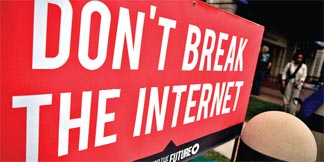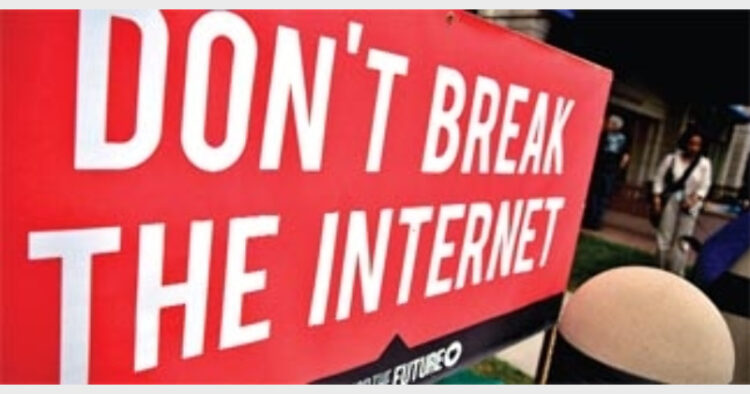
Few days back a very bold and rational decision came from Telecom Regulatory Authority of India (TRAI) supporting NET neutrality which has become the news of the town across the globe. On December 9, 2015 TRAI released a consultation paper inviting comments of stakeholders whether differential pricing over data services based on content should be allowed or not.
The authority conducted an open house discussion on January 21 to gather the views on this topic and examine the legitimacy behind the different views further coming up with the regulation of barring discriminatory tariff for data services based on specific content.
This move would impact the plans like Free Basics of Facebook and Zero platform of Airtel as these plans were seen as violation on net neutrality.
Now what does net neutrality mean? How will it impact a common user? Why would we welcome the decision of TRAI? So let’s understand it to get a better clarity.
Net neutrality is enabling same access to the data content in respect of speed and pricing available at internet to the end customer by the internet service providers without favouring any particular website. Net neutrality prohibits Internet service providers from charging the content providers for faster delivery of their content. It means that all websites and content creators will be treated equal and no extra charge would be payable to surf any website at a faster speed.
Now question is why anyone would bother if there is no neutrality. It notes that differential pricing would give telecom service providers an unfair advantage. They will have the power to shape the internet traffic to make extra benefits. For example, they will be able to charge companies like YouTube as they consume more bandwidth, and eventually the load of the extra sum will be pushed to the consumers. Also, ISPs can divide the internet traffic as high speed and low speed traffic and few websites will not be accessed on the faster speed unless and until paid extra.
Net neutrality is equally important for small content creators like small business owners who currently can advertise their products or blog writers who can share their views on open internet freely. If there is no regulation, it may happen that service providers may charge content creators to enable faster access to their websites. In such cases, large content creators and service providers will find themselves in much stronger bargaining positions as compared to newer or smaller businesses. Smaller service providers will face crucial challenges where internet power will be enjoyed by big players. The preferential speeding up of selective websites may lead to reduced access to other websites. It may also empower unduly the service providers promoting their own websites/content/apps/services accessible on lower rates thus leading to anti-competitive environment. Therefore it is extremely important to have regulations to bring innovations and minimise the entry barriers in the Bharateeya market allowing start-ups to grow.
TRAI says, “Keeping in view Bharat’s large number of Net users and content producers, the authority has taken a view that prohibition of discriminatory tariff for data services is necessary to ensure service providers continue to fulfill obligations in keeping Internet open and non-discriminatory.” In Bharat, where a majority of the population is yet to be connected to internet, allowing service providers to define the nature of access would be equivalent to let the service providers shape the users’ internet experience. This would be risky in long terms in terms of knowledge as the outlook of the users will be formed only on the basis of information that is made available to them through selective offerings.
Highlights of the TRAI Regulation in support of Net Neutrality
|
Clause 2.1 of Chapter IX of the regulation says: the subscriber shall have unrestricted access to the content available on internet unless the content is restricted by the Licensor under law. Price based differentiation would make certain content more attractive to consumer resulting in altering the consumers’ online behaviour. However, Net neutrality is a larger question and it has a number of other components like fast lane, throttling and differentially treating the packet in terms of speed etc. not being a part of this regulation.
At last, Net neutrality is significant in terms of interest of society at large and not just for few corporates. Hence we all should welcome this move of TRAI whole heartedly.
Geetika Gupta
(The writer is an active leader of youth movement for young professionals named Vivekanand Swadhyay Mandal and also an Engineer by profession working as Project Leader in HCL Infotech Ltd. at Noida)















Comments